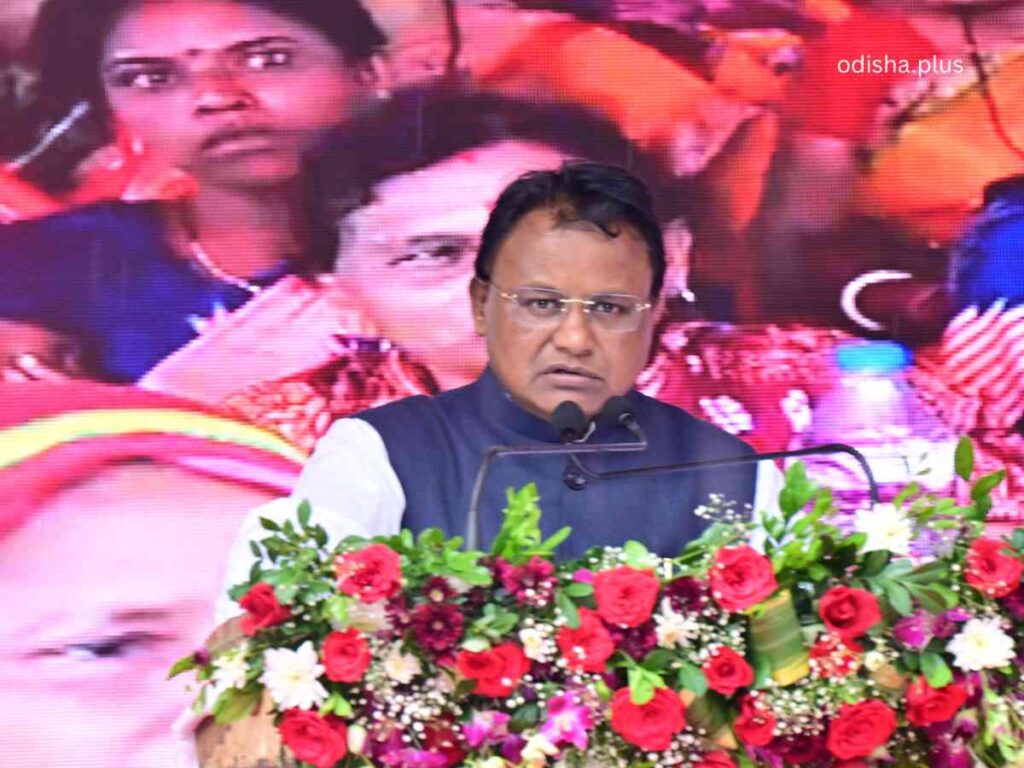The government is focused on populist measures to allure the voters without thinking of long-term development policies and the burden on the state exchequer
Pradeep Biswal

The Mohan Majhi government in Odisha completed its first year in office today. It’s time to take stock of the achievements and failures of his government during the last year.
The government has prioritised delivering on promises made in its election manifesto (“Sankalpa Patra”). Key achievements include opening all four gates of the Puri Jagannath Temple and establishing a ₹500-crore corpus fund for its development. Launching the “Subhadra Yojana” for women’s empowerment, which has contributed to the creation of 17 lakh “Lakhpati Didis” (women who have achieved financial independence).Providing an additional ₹800 per quintal bonus on paddy for farmers.Record allocation of ₹37,838 crore for the agriculture sector under the “Samruddha Krushi Yojana.” Implementation of the New Education Policy (NEP) and rollout of “Shishu Vatika” for early childhood education, with plans to establish “Godavarish Mishra Adarsh Vidyalayas.”
Implementation of the Ayushman Bharat Yojana. But people are having trouble getting the benefits. This should be resolved. The government has declared a zero-tolerance policy against corruption, stating that corrupt officials, from peons to IAS officers, will face consequences. Several arrests of corrupt officials have been cited. But prevention is better than a cure. Therefore, preventive measures should be taken to eradicate corruption from the administrative system.
Efforts have been made to reduce bureaucratic dominance and reinstate democratic processes, leading to a more equitable governance framework. But it is not yet fruitful to deliver good governance in the true spirit.
The Chief Minister has personally engaged with citizens through district visits and “janta darbars” to address grievances and improve accessibility of the government. Significant progress in performance metrics across various departments, including industries, agriculture, SC/ST development, women and child development, health and family welfare, school and mass education, and food supplies.
Increased focus on tribal welfare and representation, with an inclusive cabinet comprising four tribal ministers. Initiatives for providing piped drinking water to 90% of households by 2026 and constructing five lakh “Antyodaya” homes for the underprivileged. around 28,000 government jobs filled in the first year, with plans for 40,000 more this year.
There’s a favorable perception of CM Majhi’s leadership, emphasizing his humility and commitment to public service, with the government being seen as a “people’s government. “The police administration is reportedly regaining public trust, moving away from being perceived as an instrument of political vendetta. Political influence is not visible. The government is seen as having made a promising start and restored democratic protocols.
The government has taken steps to ensure substantial private investment in the State through outreach programs and by inviting big investors to the state with promises of a favourable investment climate. Actual investment depends upon the proactive approach of the government machinery.
If the failure of the government to fulfill certain promises and deliver justice is taken into consideration, then certain glaring things come to the forefront. Slow Progress on High-Profile Scams and Illicit Activities: The government has faced criticism for perceived reluctance or slow progress in taking firm action against certain elements.
The sand mafia and illegal minor mineral operators have become a challenge for the government. Local officials and politicians are involved in this process. The multi-crore mining scam (estimated at nearly Rs 3 lakh crore). More of such scams are being reported. Misuse of DMF money in the past has to be investigated thoroughly.
The chit fund scandal (over Rs 10,000 crore embezzled from 40 lakh small depositors). The small investors are yet to get back their money, although it was assured that they would be compensated early. While the government has delivered on a few promises, it hasn’t yet come up with a significant, transformative “big idea” in its first year. There’s a lack of a vision for long-term goals for the state.
Concerns about “Optics” and Political Messaging are growing. The emphasis on public appearances and photo opportunities leads to questions about whether these are “mere optics” or truly indicative of substantive change. People are disenchanted with this attitude of the government.
Unresolved Issues from Previous Administrations: The government is still grappling with the legacy of previous administrations, including allegations of irregularities in the 5T initiative. The government states that these are under the scanner. One year was sufficient to bring the culprits to book. There is laxity in this regard.
The government’s capacity to maintain public confidence is seen as dependent on its ability to decisively address the major unresolved scams and illicit activities. Corruption is still a serious issue, and the government should commit to corruption-free governance. Ministers and Secretaries should first establish their credibility in the system and act as role models.
There is a strong trust deficit between the government servants and the political masters in the government, resulting in slow decision-making and policy paralysis. The government is focused on populist measures to allure the voters without thinking of long-term development policies and the burden on the state exchequer.
Every day, ministers are making different announcements without proper planning and homework. The government should speak in one voice, and all important policy decisions should undergo serious scrutiny at different levels before being finalised. It should be announced either by the Chief Minister or the Chief Secretary after approval by the Cabinet.
The Chief Minister is yet to fill up vacancies in the Council of Ministers, Human Rights Commission, Lokpal, Heads of State PSUs, and government advocates in the districts and sub-district levels. It is being viewed adversely against the efficiency of the government. Even the Academies under the Culture Department are going headless for months together. Awards have been pending for almost a decade.
In conclusion, it may be said that the Mohan Majhi government in Odisha has had a promising first year, marked by a strong focus on fulfilling electoral promises, improving governance accessibility, and initiating welfare schemes. However, it faces significant challenges in tackling long-standing issues like corruption and illicit activities, which will be crucial for its long-term credibility and public perception.
(Sri Patnaik is a writer and Public affairs commentator. Views are personal)




























This article presents a true picture of activities of present government in its first year.